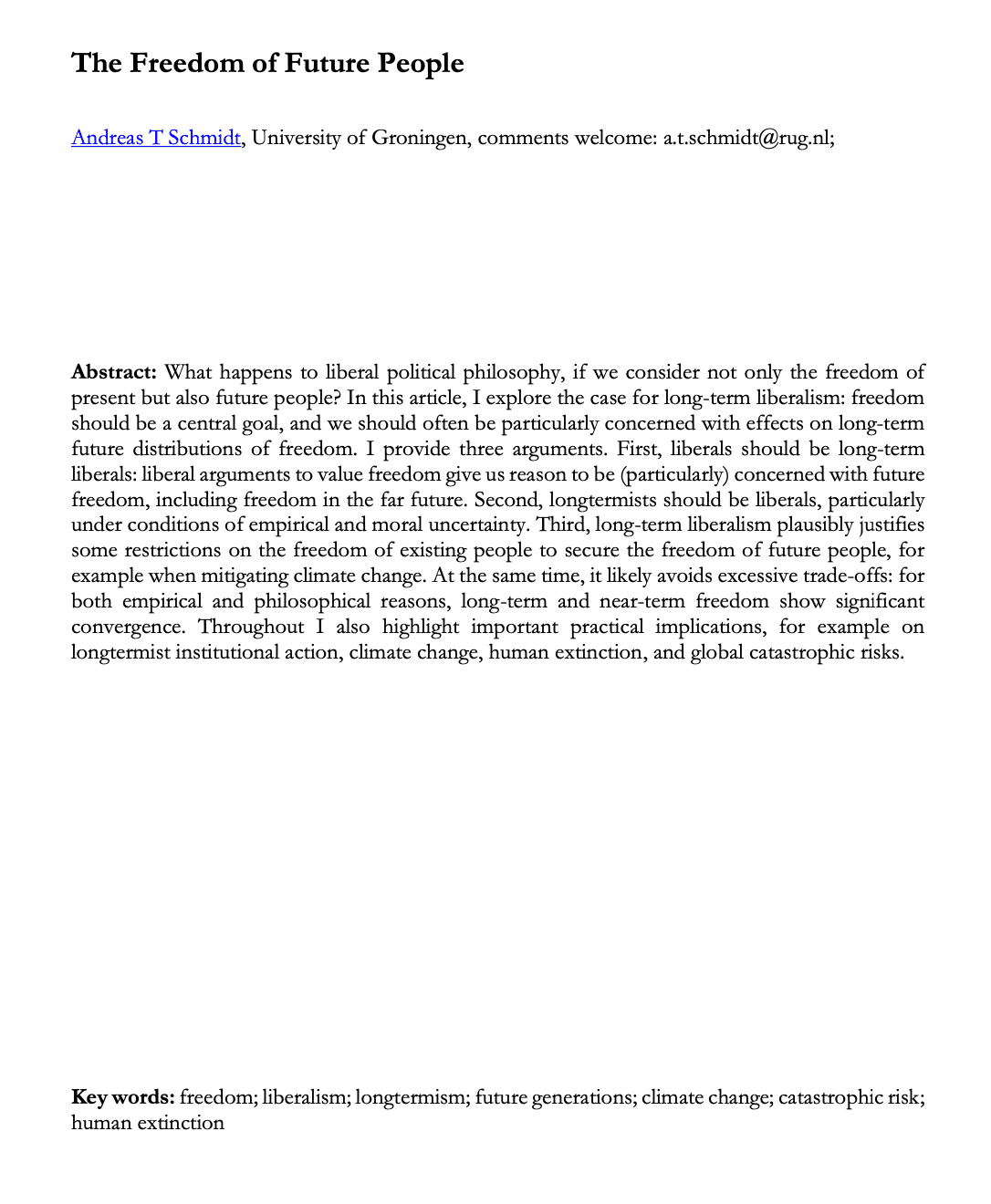The freedom of future people
Andreas T Schmidt (University of Groningen)
GPI Working Paper No. 10-2023
What happens to liberal political philosophy, if we consider not only the freedom of present but also future people? In this article, I explore the case for long-term liberalism: freedom should be a central goal, and we should often be particularly concerned with effects on long-term future distributions of freedom. I provide three arguments. First, liberals should be long-term liberals: liberal arguments to value freedom give us reason to be (particularly) concerned with future freedom, including freedom in the far future. Second, longtermists should be liberals, particularly under conditions of empirical and moral uncertainty. Third, long-term liberalism plausibly justifies some restrictions on the freedom of existing people to secure the freedom of future people, for example when mitigating climate change. At the same time, it likely avoids excessive trade-offs: for both empirical and philosophical reasons, long-term and near-term freedom show significant convergence. Throughout I also highlight important practical implications, for example on longtermist institutional action, climate change, human extinction, and global catastrophic risks.
Other working papers
Crying wolf: Warning about societal risks can be reputationally risky – Lucius Caviola (Global Priorities Institute, University of Oxford) et al.
Society relies on expert warnings about large-scale risks like pandemics and natural disasters. Across ten studies (N = 5,342), we demonstrate people’s reluctance to warn about unlikely but large-scale risks because they are concerned about being blamed for being wrong. In particular, warners anticipate that if the risk doesn’t occur, they will be perceived as overly alarmist and responsible for wasting societal resources. This phenomenon appears in the context of natural, technological, and financial risks…
High risk, low reward: A challenge to the astronomical value of existential risk mitigation – David Thorstad (Global Priorities Institute, University of Oxford)
Many philosophers defend two claims: the astronomical value thesis that it is astronomically important to mitigate existential risks to humanity, and existential risk pessimism, the claim that humanity faces high levels of existential risk. It is natural to think that existential risk pessimism supports the astronomical value thesis. In this paper, I argue that precisely the opposite is true. Across a range of assumptions, existential risk pessimism significantly reduces the value of existential risk mitigation…
Longtermist institutional reform – Tyler M. John (Rutgers University) and William MacAskill (Global Priorities Institute, Oxford University)
There is a vast number of people who will live in the centuries and millennia to come. Even if homo sapiens survives merely as long as a typical species, we have hundreds of thousands of years ahead of us. And our future potential could be much greater than that again: it will be hundreds of millions of years until the Earth is sterilized by the expansion of the Sun, and many trillions of years before the last stars die out. …

